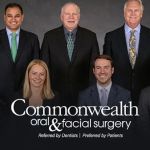Maintaining gum health is crucial for overall oral hygiene, yet many individuals experience severe gum issues at some point in their lives. For those with advanced periodontal disease, gum surgery often becomes a necessary intervention. But what exactly does this procedure entail, and how effective is it in treating gum disorders? This article delves into the indications for gum surgery and assesses its effectiveness, offering insights particularly beneficial for our readers in the United States. Understanding the role of gum surgery can be the first step towards making informed decisions about your dental health.
Understanding the Need for Gum Surgery
Gum surgery is typically recommended when non-surgical treatments fail to mitigate gum disease. The primary indications for gum surgery include persistent gum inflammation, deep periodontal pockets, and bone loss around teeth. Patients with chronic periodontal disease often show symptoms such as swollen, bleeding gums, and receding gum lines. According to the American Academy of Periodontology, gum disease affects nearly 50% of adults in the United States, making surgical intervention a common necessity. Early intervention through surgery can prevent tooth loss and further degradation of oral health, making it a critical consideration for those diagnosed with severe periodontal issues.
Types of Gum Surgery and Their Effectiveness
Various types of gum surgery are available, each tailored to address specific gum problems. Common types include flap surgery (pocket reduction), grafts, and bone surgery. Flap surgery involves lifting the gums to remove tartar buildup and is often effective in reducing periodontal pockets. Gum grafts, on the other hand, are used to cover exposed roots and enhance the gum line, which can significantly improve aesthetics and protect against sensitivity. Bone surgery, including guided tissue regeneration, helps rebuild bone lost to periodontitis. Clinical studies have shown that these surgeries not only halt the progression of disease but also promote the regeneration of healthy tissue, making them highly effective treatments.
Patient Experiences and Outcomes
Patient testimonials and case studies provide valuable insights into the effectiveness of gum surgery. Many individuals report significant improvements in gum health and aesthetics post-surgery. For example, a study in the Journal of Periodontology noted that over 75% of patients experienced substantial reductions in pocket depth and improved gum attachment after undergoing periodontal surgery. Moreover, those suffering from severe bone loss noted regenerative improvements following specific surgical interventions. Such outcomes underscore the positive impact of gum surgeries on overall dental health and patient satisfaction.
Considertions and Preconditions
Before opting for gum surgery, patients should consider various factors and consult with their dental professionals. Preconditions such as overall health, the severity of gum disease, and personal medical history play a crucial role in the success of the surgery. It's essential to discuss any medications, allergies, or pre-existing conditions with your periodontist to assess suitability for surgery. Furthermore, adopting a rigorous post-surgery oral care routine is vital for ensuring long-term success and minimizing the risk of recurring issues. Regular follow-up appointments and adherence to advised hygiene practices significantly enhance recovery and prolong the surgery's benefits.
Conclusion: Taking Action for Healthier Gums
In conclusion, gum surgery is a potent tool in combating severe periodontal diseases. Its indications are clear—when non-surgical methods fail, and the risk of tooth loss becomes imminent, surgical intervention can protect and restore oral health. Dentistry Toothtruth encourages individuals experiencing persistent gum issues to consult with their dental care providers and consider the potential benefits of gum surgery. Staying informed and proactive can make a significant difference in maintaining dental health and overall well-being. For more information on dental health, visit Dentistry Toothtruth and explore our resources on maintaining healthy gums.







 Reve Orthodontics - Midtown Atlanta4.0 (258 review)
Reve Orthodontics - Midtown Atlanta4.0 (258 review) Commonwealth Oral & Facial Surgery Brandermill4.0 (57 review)
Commonwealth Oral & Facial Surgery Brandermill4.0 (57 review) All Smile Dental Center3.0 (31 review)
All Smile Dental Center3.0 (31 review) David A. Rice, DDS4.0 (186 review)
David A. Rice, DDS4.0 (186 review) Central Pennsylvania Endodontics, LLC5.0 (241 review)
Central Pennsylvania Endodontics, LLC5.0 (241 review) Dental Element - Roman Rozanov D.M.D., P.C.4.0 (134 review)
Dental Element - Roman Rozanov D.M.D., P.C.4.0 (134 review) The Importance of Oral Health Education During Pregnancy for a Healthy Pregnancy
The Importance of Oral Health Education During Pregnancy for a Healthy Pregnancy Best Tips for Brushing Your Teeth Properly for Healthy Gums: Essential Techniques for Oral Health
Best Tips for Brushing Your Teeth Properly for Healthy Gums: Essential Techniques for Oral Health Why Skipping Dental Checkups Can Lead to Bigger Oral Health Problems
Why Skipping Dental Checkups Can Lead to Bigger Oral Health Problems Advantages of Porcelain Dental Restorations
Advantages of Porcelain Dental Restorations How Can Diabetes Cause Tooth and Gum Problems? Preventing and Managing Oral Health Issues
How Can Diabetes Cause Tooth and Gum Problems? Preventing and Managing Oral Health Issues Healthy Habits for Promoting Good Oral Health and Hygiene: Tips for a Healthy Smile
Healthy Habits for Promoting Good Oral Health and Hygiene: Tips for a Healthy Smile